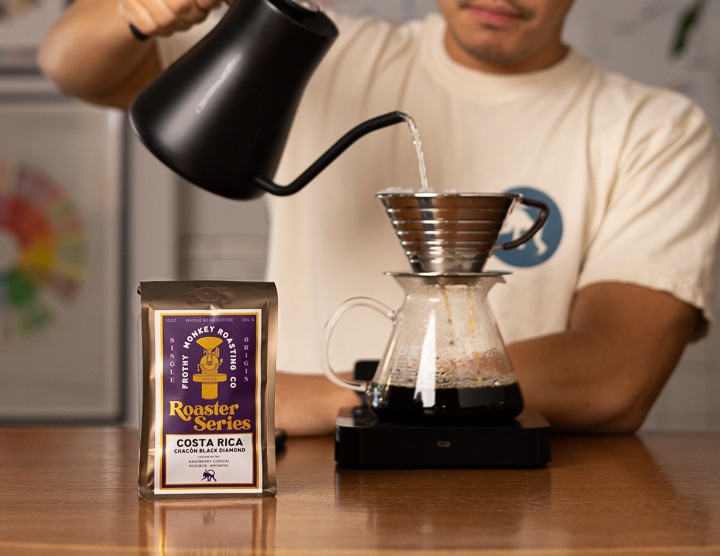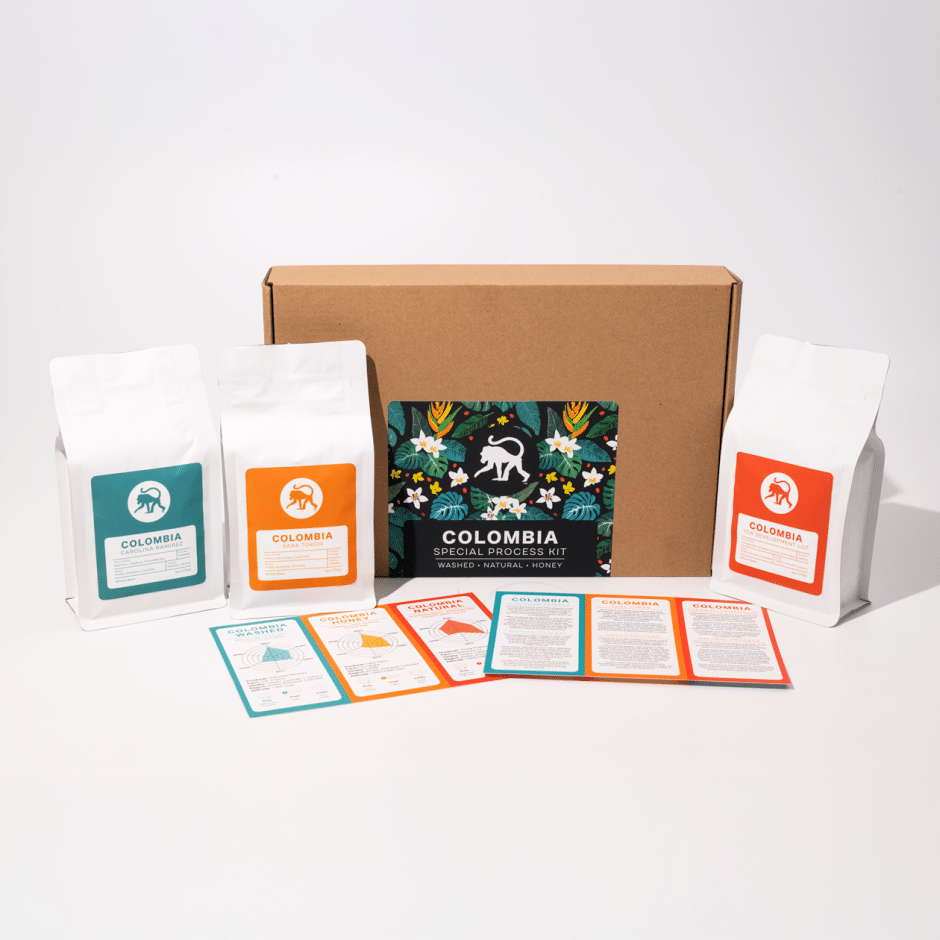Oscar and Francisca Chacón are third-generation coffee producers committed to quality and innovation. They are among the very first farmers in Costa Rica to produce Honey and Natural process specialty coffee.
In 2005, they joined the brand-new “micromill revolution” and bought their own depulper to have more control over the quality and the price they received for their lots. “At first, we didn’t know what we were doing,” Oscar explains. “We were just experimenting.” That experimentation led to some of the most exciting new flavor profiles they had ever tasted. Now, the Chacóns produce a wide range of Honey process coffees, modulating the drying time in order to create different effects in the cup.
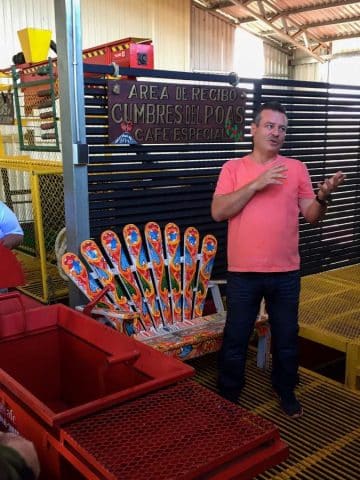
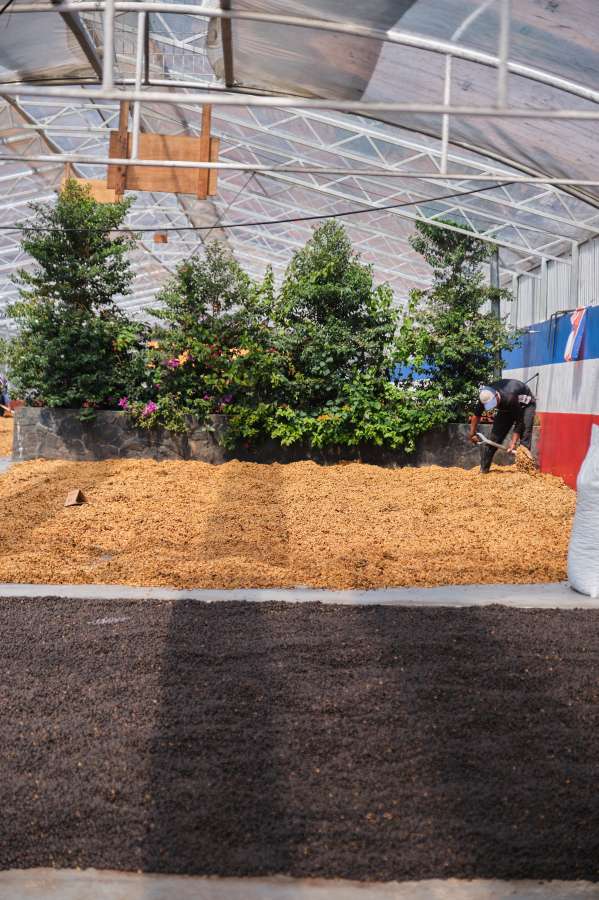
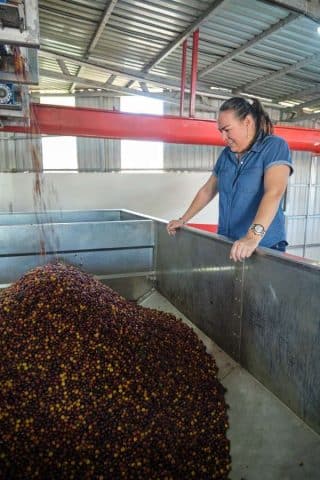
In 2008 an earthquake wiped out water and electricity to their area mid-harvest. Unable to run the depulpers or wash the mucilage off to produce Washed lots, Francisca took inspiration from her knowledge of African coffee production and quickly built raised beds on the property.
These days, Las Lajas focuses on several variations of both Honey and Natural process:
- Yellow Honey: Coffee is turned hourly on raised beds for a few days, then transferred to a greenhouse and turned regularly.
- Red Honey: Coffee is turned several times a day and dried for longer in the greenhouse.
- Black Honey: Coffee is turned once a day.
- Perla Negra Natural: Coffee dries directly in the sun for 10 days, rotating constantly, and then is transferred to bags and left for 2–3 days before being moved to raised beds.
- Alma Negra: Drying starts in the greenhouse for a few days. Then it is brought to the greenhouse and piled up at night and moved to the raised beds during the sunshine hours.
Perhaps most notable is their Black Diamond process. What makes this different from the rest is the drying process. It is still a honey process, but the drying period takes anywhere from 15 to 22 days. They begin with rigorous harvesting standards, followed by depulping, and then dried with superficial humidity for one day on raised beds.
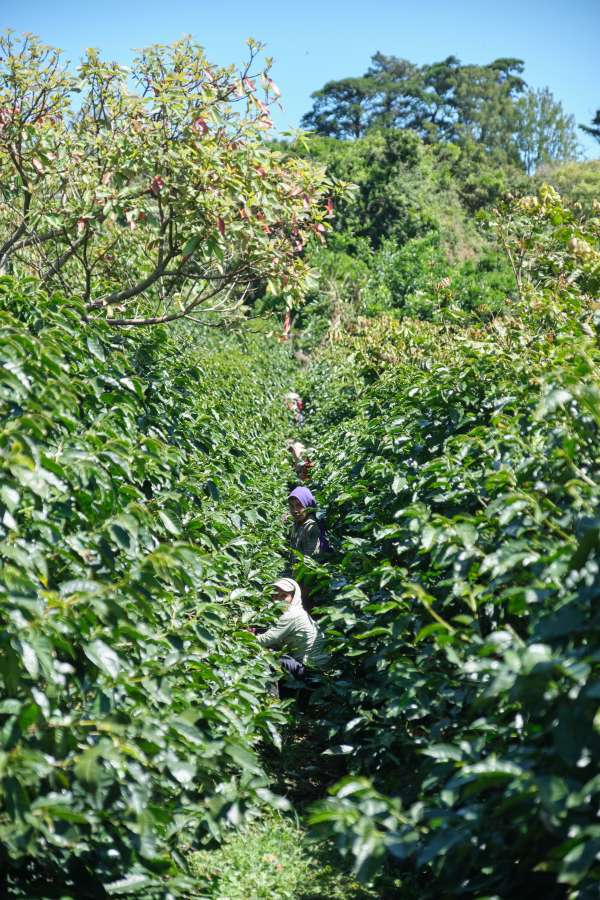

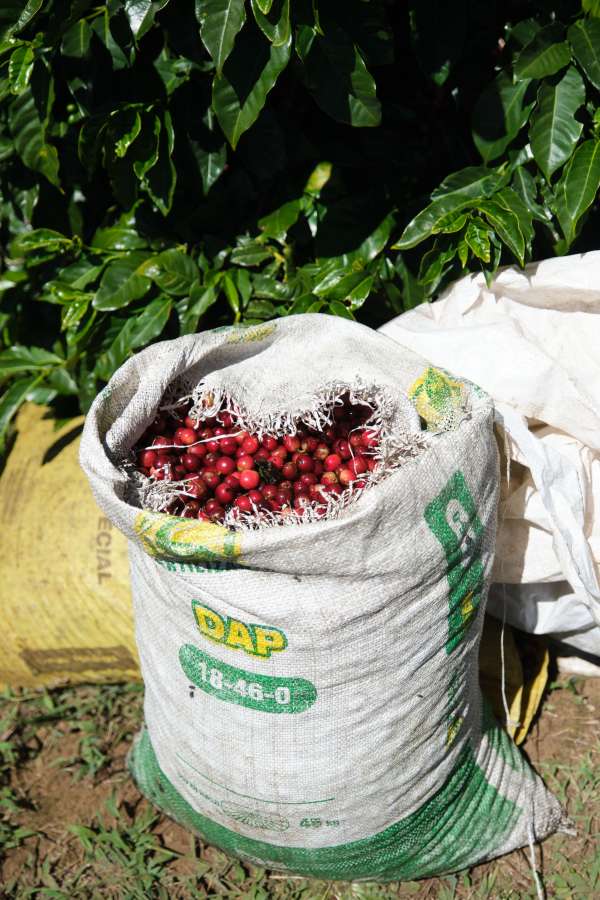
The beans are then moved from raised beds to the drying patio. This process takes more attention than the rest of their honeys because of the slow drying process. They need to constantly check the temperature and movement of the beans to avoid heating. The goal is slow dehydration, much slower than usual, as to not allow the temperature to rise suddenly. Oscar explains the inspiration for the process came from the way coffee seeds are dried for nurseries. Slowly drying them without compromising the embryo. Avoiding high temperatures allows the sugars of the mucilage to cold crystal, producing a sweeter, more clear, and bright coffee with the Diamond process.
We love this coffee for its delicate balance of decadent brownies, rooibos tea aromatics, and raspberry-like sweetness. We’re delighted to share this coffee with you!
This is the sixth release in our Roaster Series, sourced and roasted by our head roaster Daniel Lopez. Check out our Roaster Series page to learn more about this project!

